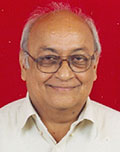The war from which all will lose
14 Jun 2011
 Prashant Bhushan and, one presumes, his father, deserve credit for having steered the joint committee on the Lokpal bill away from the reef towards which it was heading. The intemperate exchange between Anna Hazare and Pranab Mukherjee over the past weekend, had threatened to trigger a confrontation between the government and civil society from which neither would have emerged a winner.
Prashant Bhushan and, one presumes, his father, deserve credit for having steered the joint committee on the Lokpal bill away from the reef towards which it was heading. The intemperate exchange between Anna Hazare and Pranab Mukherjee over the past weekend, had threatened to trigger a confrontation between the government and civil society from which neither would have emerged a winner.
Hazare had hurled string of accusations of bad faith against the government, including an assertion that it had earlier agreed to include the prime minister within the ambit of the Lokpal's powers of investigation and then backed out.
A nettled Mukherjee had responded by asserting that the sovereignty of parliament could not be questioned or diluted; that parliament was sovereign, and could not be dictated to by anyone, including members of civil society, who were its subjects. When he went on to reject Hazare's 15 August deadline for the passage of the Lokpal bill, saying that no one could dictate to parliament when it should pass a bill, he came close not only to blowing up the entire negotiations but also triggering off another confrontation between the state and its subjects.
Fortunately the crisis has passed and the committee will meet as it was scheduled to on 15 June. But the central issues still remain to be sorted out and it is on these that the future of the country could hinge.
Chief among these is the inclusion of the prime minister. While Hazare and his more radical followers are adamant that he or she cannot be above investigation, the government has agreed to let the Lokpal investigate his or her conduct, but only after he / she has relinquished the portfolio. In this it is Hazare and his colleagues who are being unreasonable and not the government.
The prime minister is not merely a representative of the people, but the head of state and the focus of both power and authority within it. This power and authority is by definition continuous for this continuity is the very essence of the state. This is the profound understanding that underlies the oldest phrase in politics ''The King is dead, long live the King''.


















